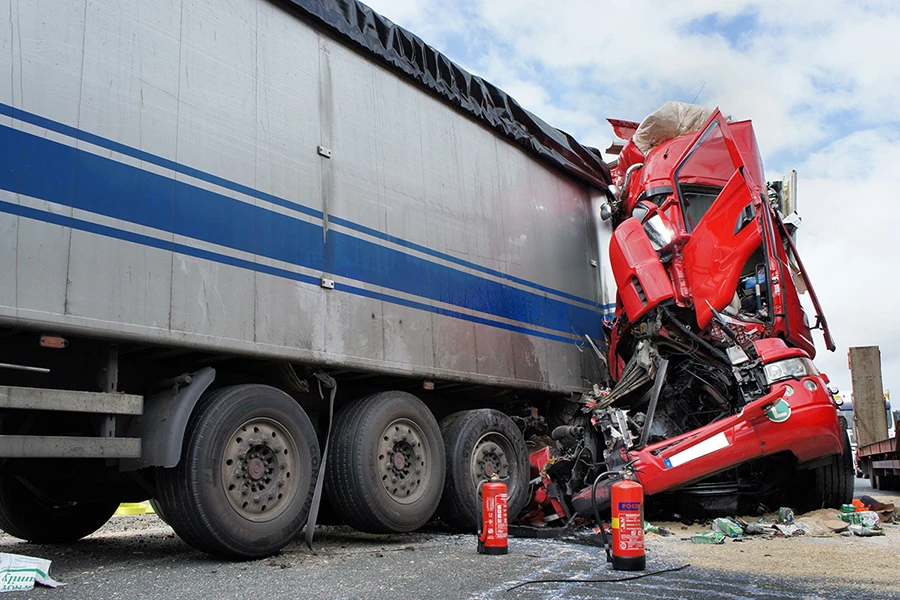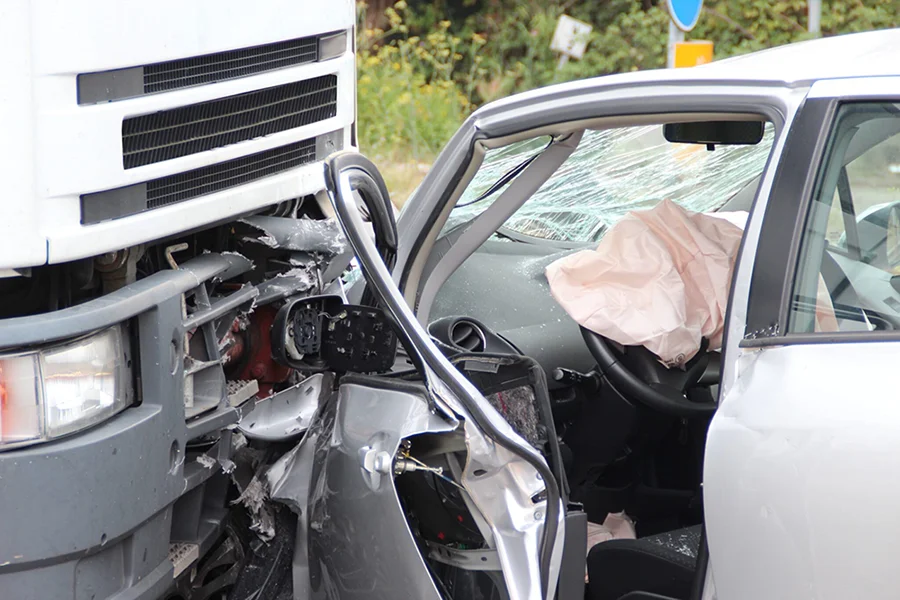Avoid a Lawsuit: Identify and Resolve Common Truck Brake Failures
By: Simon Law | May 2, 2023

When considering a commercial truck accident, most people will assume the cause behind the crash is the truck driver’s own negligence. While a trucker’s mistake is a major cause of countless truck accidents every year, it is not the only way a big rig can lose control and result in a collision. Some common truck brake failures are also significant hazards that can and do put motorists at risk.
Other than being dangerous, truck brake failures create a complicated liability situation. How can you prove who should provide you compensation to pay for your damages if a brake system failure caused the crash? The question is difficult, but not impossible to answer, especially if you retain help from experienced semi-truck accident attorneys in St. Louis.
What Are the Most Common Types of Brake Failure in Trucks?
There could be a number of reasons brakes fail on a tractor-trailer, but in most cases, these are the most common causes of truck brake failures and their potential liability:
Truck Part Defects
Auto part manufacturers have an unshakable responsibility to only create parts safe for regular use. For a commercial truck, regular use means extended hours of use on end, and bringing up to 80,000 pounds — the federal weight limit for tractor-trailers when all parts are weighed — to a complete stop from highway speed. A defect in the brake parts could result in a catastrophic failure. At such a point, liability may partially belong to the auto part manufacturer.
Maintenance Failure
Truck brake systems undergo massive amounts of stress in an average workweek. Even a completely functional and perfectly made truck brake system needs routine maintenance to keep it in working order. It is the responsibility of maintenance crews to make certain any work done to repair or replace brake systems is done correctly. Failing to complete maintenance acceptably can make a maintenance company liable for any resulting truck accidents.
The role of truck maintenance in preventing brake failure is a big one. During a routine brake inspection, brakes that show any wear or tear could be putting the driver and others on the road at high risk. Any wear on brakes will add to the time it takes for the truck to come to a complete stop. Because of their high usage and quick wear, truck brakes should be inspected once every six months with servicing at least once or twice each year.
Overloaded Trailer
There is also the responsibility on load crews, parent trucking companies, and individual truck drivers to make certain the trailer of a big rig is not overloaded. Placing too much weight in a trailer, or misbalancing the weight distribution in a trailer, will put extreme stress on the brakes beyond the intended amounts. If the brakes fail after being overloaded, the liability could be distributed among all three of those parties, which will make an increased challenge to determine the best way to pursue compensation.
More to Know About Truck Brake Failure
What Are the Signs of Impending Truck Brake Failure?
When it comes to brakes, there are some warning signs to watch for that may indicate a potential brake failure.
- A loud screech or thump sound. This noise is caused by the brakes’ inability to make an adequate connection with the tires and the you’re hearing the sound of the friction caused by revolving tires.
- Jerking forward when braking. Any issues applying pressure to the brakes or if the brakes themselves aren’t quite able to hold a grip, the truck can appear to be lurching forward as the brakes are trying to grab hold.
- Rapid acceleration, especially going downhill. Air brakes are meant to slow trucks down on hills, but if the brakes are malfunctioning, the weight of the truck combined with gravity will cause the truck to go downhill at an accelerated speed.
- Hazard lights or honking. Unfortunately, if this is happening, the trucker is currently having difficulties braking, so it’s best to keep your distance. Truckers should be using these signals to warn others as they attempt to coast the truck to a stop. Do not attempt to pass or maneuver around the truck until it has come to a full stop.
Can Weather Conditions Contribute to Truck Brake Failure?
As almost any driver can attest, driving in poor weather conditions can be very difficult and quite dangerous. For truck drivers, those difficulties are magnified. Anytime there’s rain, snow, sleet, or hail, the truck’s ability to brake or come to a complete stop is decreased. Commercial truck drivers should be driving much more cautiously in bad conditions, refraining from using Jake Brakes or overusing their foot brakes unless driving in a straight line. Because all traffic is moving much slower in poor conditions, the chances of a truck accident can increase.
Who is Liable for a Truck Accident Caused by Brake Failure?
Liability for brake failure will depend on the root cause of the failure. If it was due to a manufacturing defect, the company that designed, made, or assembled the brakes may be at fault. If a truck was recently inspected or underwent maintenance, the repair shop or maintenance location may be found liable for the brake failure. If a trucking company was irresponsible with loading the truck, making it too heavy or uneven, the company could be held liable. Finally, if the accident was found to be due to the driver’s failure to brake properly, the driver himself could be found liable for the accident.
Injured in a Trucking Accident? Secure the Right Representation
If you have been hurt in a trucking accident caused by a brake system failure, you can depend on The Simon Law Firm and our St. Louis trucking accident attorneys to navigate the legalities of your claim on your behalf. You can focus yourself on recuperating as best you can while our team does the rest. Since our founding in 2000, we have obtained more than $1 billion in verdicts and settlements for the wrongfully injured, and we would be happy to see how we can apply that caliber of service to your case as well.
Get representation now. Call (314) 241-2929 to schedule your free consultation.

